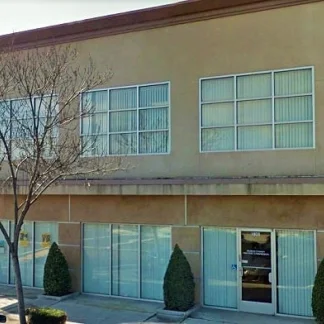Antioch Substance Abuse Programs
Antioch Substance Abuse Programs is an office-based addiction and mental health ...
Hispanic Commission on Alcohol and Drug Abuse Services – Nuestra Casa offers Spanish-speaking residential addiction and mental health treatment for adult males in Fresno, California. Programs at WestCare use evidence-based practices to treat substance abuse and co-occurring mental health conditions for adult males aged 18 and older.
Services include an intensive outpatient program (IOP), recovery support groups, and a DUI program. They also provide valuable community resources, including mental health services, family support services, and case management.
Treatment at Hispanic Commission on Alcohol and Drug Abuse Services – Nuestra Casa begins with a mental health assessment to screen for symptoms of addiction or co-occurring mental health disorders. Participants in the IOP attend individual and group treatment sessions for improved coping skills, peer support, and recovery support. Sessions are held 3-4 days per week and are available in English and Spanish.
Recovery support groups offer regular meetings that include mutual-aid support, educational workshops, and life-skills training. Meetings are available throughout the day, several days per week.
Hispanic Commission on Alcohol and Drug Abuse Services – Nuestra Casa also supports individuals with their diversion services, offering an outpatient addiction treatment program as ordered by the court or DMV.
As a nonprofit organization, Nuestra Casa accepts Medicaid, funding, and sliding-scale options. You’ll want to check with your insurance provider to determine your eligibility for any out-of-network benefits.
Contact us for more information: (559) 268-6475

Connect with Hispanic Commission on Alcohol and Drug Abuse Services - Nuestra Casa by calling their admissions team directly.
(559) 268-6475 Website Get DirectionsExperiential therapy is a form of therapy in which clients are encouraged to surface and work through subconscious issues by engaging in real-time experiences. Experiential therapy departs from traditional talk therapy by involving the body, and having clients engage in activities, movements, and physical and emotional expression. This can involve role-play or using props (which can include other people). Experiential therapy can help people process trauma, memories, and emotion quickly, deeply, and in a lasting fashion, leading to substantial and impactful healing.
Group therapy is any therapeutic work that happens in a group (not one-on-one). There are a number of different group therapy modalities, including support groups, experiential therapy, psycho-education, and more. Group therapy involves treatment as well as processing interaction between group members.
In individual therapy, a patient meets one-on-one with a trained psychologist or counselor. Therapy is a pivotal part of effective substance abuse treatment, as it often covers root causes of addiction, including challenges faced by the patient in their social, family, and work/school life.
Group therapy is any therapeutic work that happens in a group (not one-on-one). There are a number of different group therapy modalities, including support groups, experiential therapy, psycho-education, and more. Group therapy involves treatment as well as processing interaction between group members.
In individual therapy, a patient meets one-on-one with a trained psychologist or counselor. Therapy is a pivotal part of effective substance abuse treatment, as it often covers root causes of addiction, including challenges faced by the patient in their social, family, and work/school life.
In individual therapy, a patient meets one-on-one with a trained psychologist or counselor. Therapy is a pivotal part of effective substance abuse treatment, as it often covers root causes of addiction, including challenges faced by the patient in their social, family, and work/school life.
Antioch Substance Abuse Programs is an office-based addiction and mental health ...
Central California Recovery offers office-based addiction and mental health trea...
King of Kings Community Centers - Men's Recovery Home is a private rehab located...
Adolescent Behavioral Clinic is a private rehab located in Fresno, California. A...